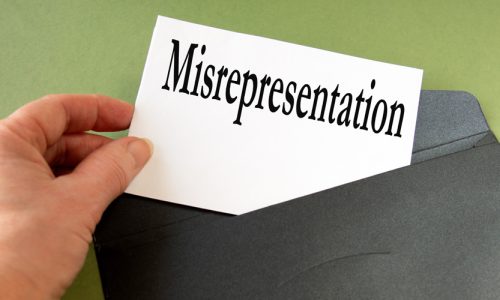Toronto Immigration Lawyer | Canadian Immigration Lawyer | Law Office of Tià Sherene McCalla
Can You Appeal a Permanent Residency Rejection Without a Lawyer?

Navigating Canadian immigration rules can feel overwhelming, especially with frequent policy updates. For many, one of the most difficult setbacks is receiving a permanent residency (PR) refusal. After investing time, effort, and hope into building a future in Canada, a refusal can feel devastating. But a rejection is not always the end of the road—there are options to challenge the decision.
A common question that arises is: Can you appeal or judicially review a permanent residency refusal without a lawyer? The short answer is yes, but the process is complex, time-sensitive, and carries significant risks.
This article explores your rights to judicially reviewing or appealing a PR rejection, the difference between appeals and judicial reviews, the risks of going through the process without legal representation, and how working with an immigration appeal lawyer can make a difference.
Knowing the Rights to Appeal a PR Rejection
Applicants who are refused permanent residency generally have two legal options to challenge the decision.
1. Appeal to the Immigration Appeal Division (IAD)
In certain cases, Applicants have the right to appeal their refusal to the Immigration Appeal Division (IAD) of the Immigration and Refugee Board. Common situations where an appeal may be available include:
- Refusals of family sponsorship applications (such as spousal sponsorships)
- Findings related to residency obligations for permanent residents
An appeal for immigration refusal before the IAD allows Applicants to provide legal arguments and, in some cases, new evidence. It is a more flexible process than judicial review, but it is only available for specific categories of PR refusals.
2. Judicial Review at the Federal Court of Canada
For most other permanent residency refusals, the appropriate process is to seek a judicial review at the Federal Court of Canada. Judicial review is not a full re-hearing of your case. Instead, the Court examines whether the immigration officer or decision-maker made an error in law, fact, or procedure.
Key points about judicial review:
- No new evidence can be introduced. The review is based on the record of the original decision.
- The Court does not substitute its decision—it may send the case back for re-determination if it finds an error.
- Timelines are strict: in some cases, applicants have as little as 15 days to file a judicial review after receiving their refusal.
Risks of Filing an Appeal or Judicial Review Without Legal Representation
While Canadian immigration law does not require applicants to have an immigration appeal lawyer, appealing or seeking judicial review on your own can be risky. Common challenges include:
- Lack of Legal Knowledge: Immigration law is detailed and complex. An applicant without legal expertise may not fully understand the specific grounds for appeal, the types of errors that could form the basis for an appeal, or the appropriate legal strategies to use.
- Missing Deadlines: Legal deadlines are strict in immigration cases, and failing to file an appeal on time may result in the loss of the opportunity to challenge the decision.
- Weakened Case Presentation: Success depends not just on facts, but on how legal errors are identified and argued. Without the experience of an immigration appeal lawyer, self-represented applicants may struggle to make their strongest case.
- Procedural Complications: Judicial reviews and appeals each involve multiple stages—filings, written submissions, hearings, and sometimes settlement discussions. Without guidance, the process can feel overwhelming.
- Reduced Chances of Success: Lawyers are trained to identify errors in reasoning, use case precedents, and ensure that the case is properly advanced. Without the expertise of an Appellate lawyer in Toronto, Applicants may risk missing critical issues.
In short, while it’s possible to appeal a permanent residency rejection without a lawyer, doing so comes with considerable risks that could result in the loss of the opportunity to enter Canada or stay in the country.
How Immigration Appeal and Federal Court Lawyers Help
Immigration appeal lawyers who specialize in appeals and judicial reviews bring expertise that can significantly impact outcomes. Here’s how they can assist:
- Comprehensive Case Review: An experienced lawyer will examine the refusal letter, original application and supporting documents to identify possible errors or oversights.
- Preparation of a Strong Legal Argument: Lawyers craft comprehensive submissions that highlight mistakes, flaws in the decision, and apply the relevant laws and precedents to challenge the decision to increase the chances of success.
- Evidence Gathering: In some situations, new or clarifying evidence may be presented. Lawyers ensure that this evidence is relevant and persuasive.
- Correct Forum Selection: A lawyer knows whether to file at the IAD or Federal Court, ensuring the case is heard in the appropriate venue.
- Advocacy and Negotiation: In some cases, there may be opportunities for negotiation or settlement. Skilled lawyers will advocate for Applicants before decision-makers and, when possible, negotiate to resolve issues efficiently.
- Ongoing Case Management: The appeal process can be lengthy and requires meticulous attention to detail. From filing deadlines to procedural updates, lawyers can handle the details so applicants can focus on their lives.
By working with an immigration appeal lawyer, Applicants can feel confident that every step of the process is managed with care and that the most effective legal strategies are being applied to their case.
Next Steps After a Permanent Residency Refusal
If you have received a PR refusal, here are some of the steps to take:
- Read the Refusal Letter Carefully: Understand the reasons for the decision.
- Identify the Correct Remedy: Confirm if your case falls under the IAD appeal process or requires judicial review.
- Consult an Immigration Lawyer: Even a brief consultation can clarify next steps and prevent missed deadlines. Legal advice is crucial in making sure the appeal is filed correctly.
- Act Quickly: File the necessary documents within the required timelines.
Get in touch with Tià Sherene McCalla for PR Rejection
While it is possible to pursue a judicial review or appeal a permanent residency (PR) rejection without legal representation, the process is highly technical, the timelines are strict, and the consequences of mistakes can be serious. For many, working with an immigration appeal lawyer provides the knowledge, strategy, and advocacy needed to move forward when appealing PR rejections.
For assistance with appealing immigration decisions or to discuss the case further, contact The Law Office of Tià Sherene McCalla, where skilled immigration lawyers are always there for guidance.






